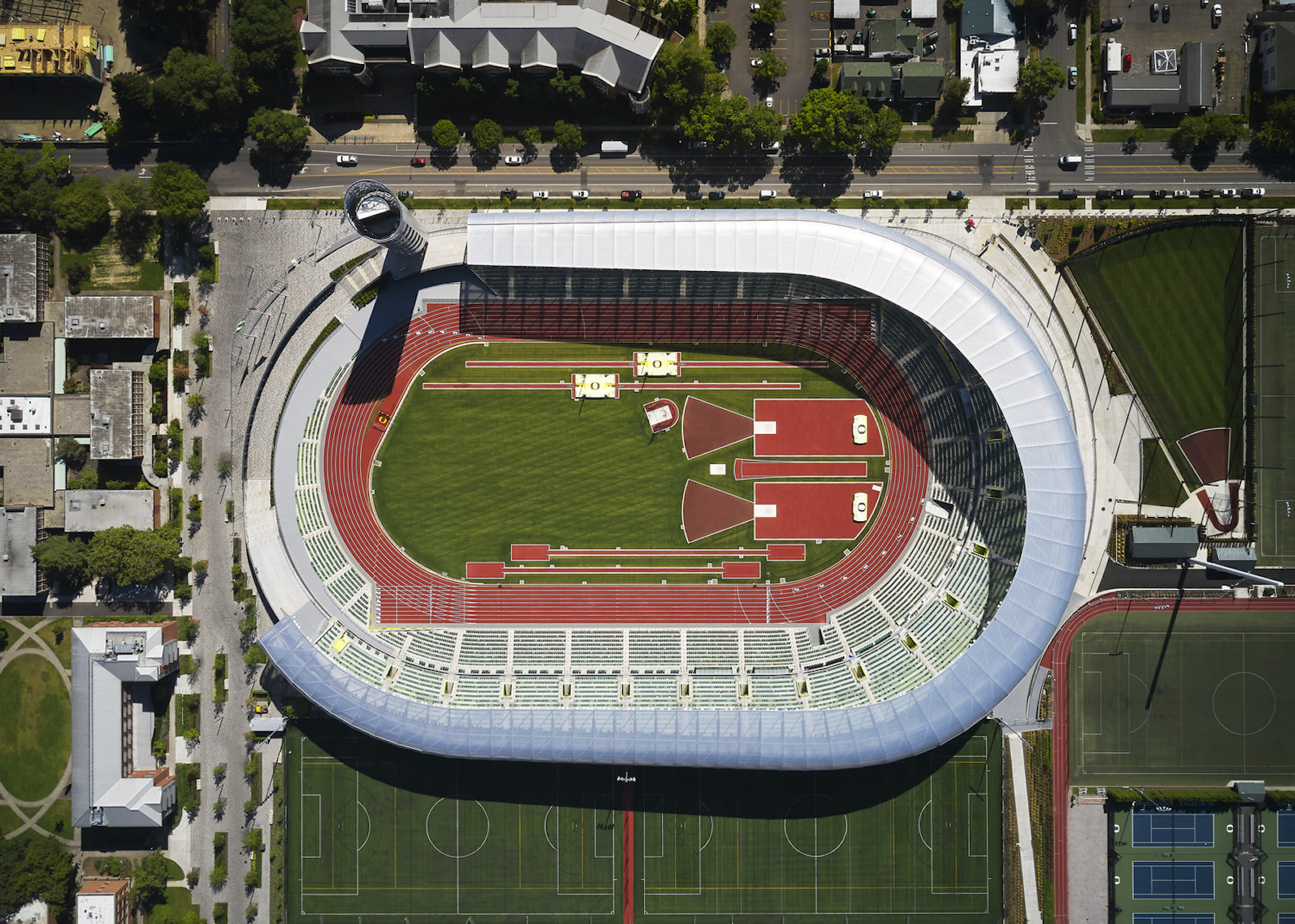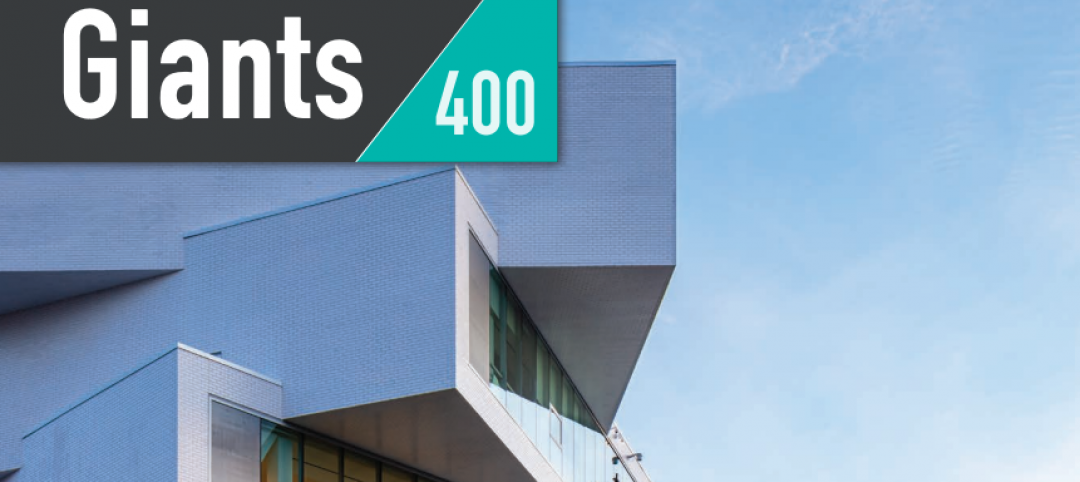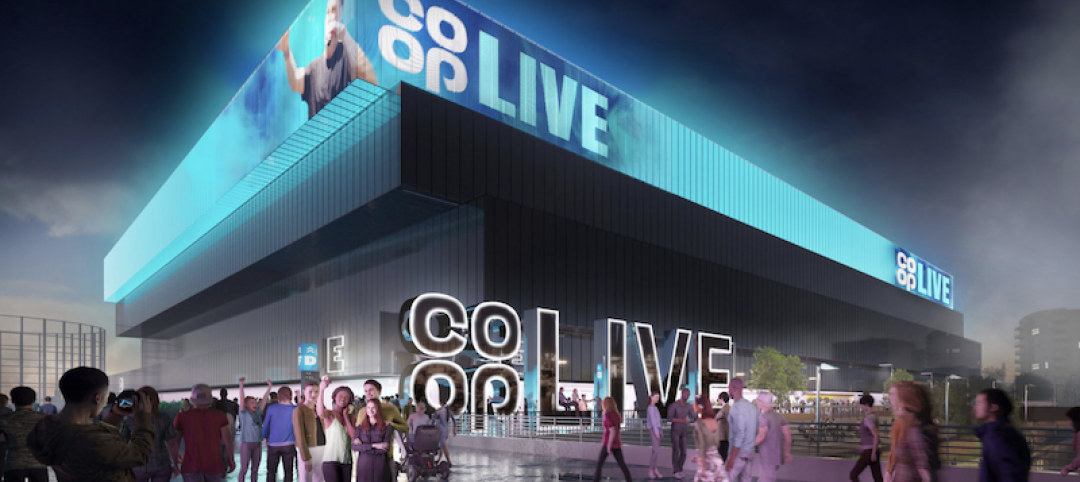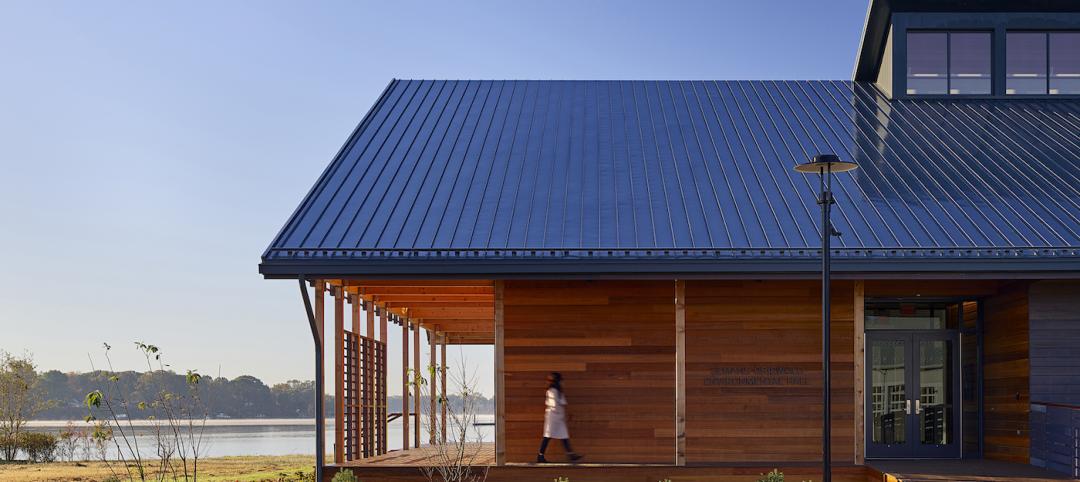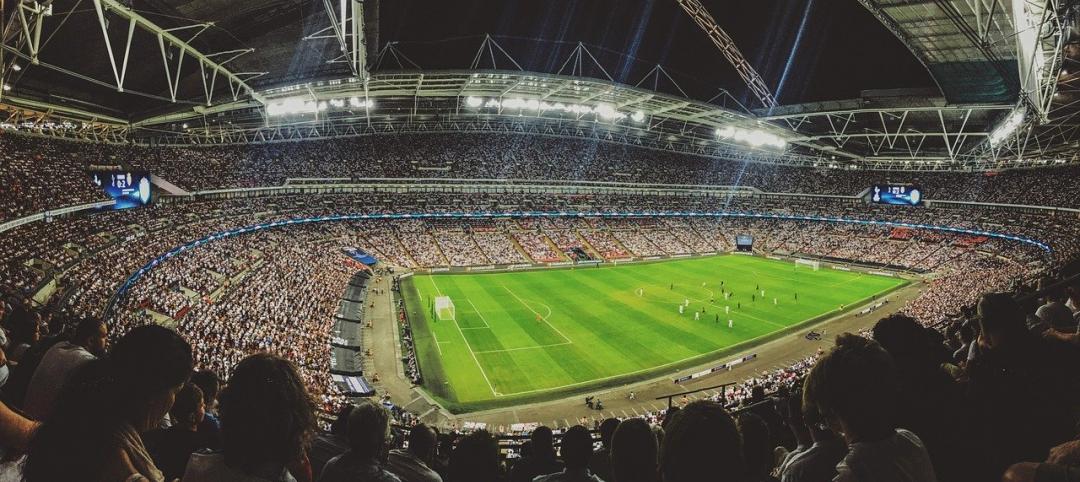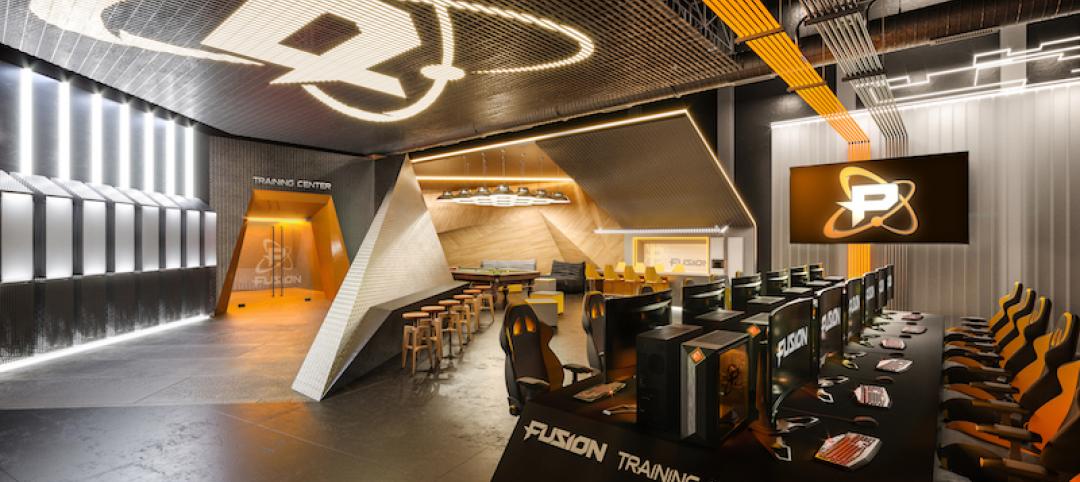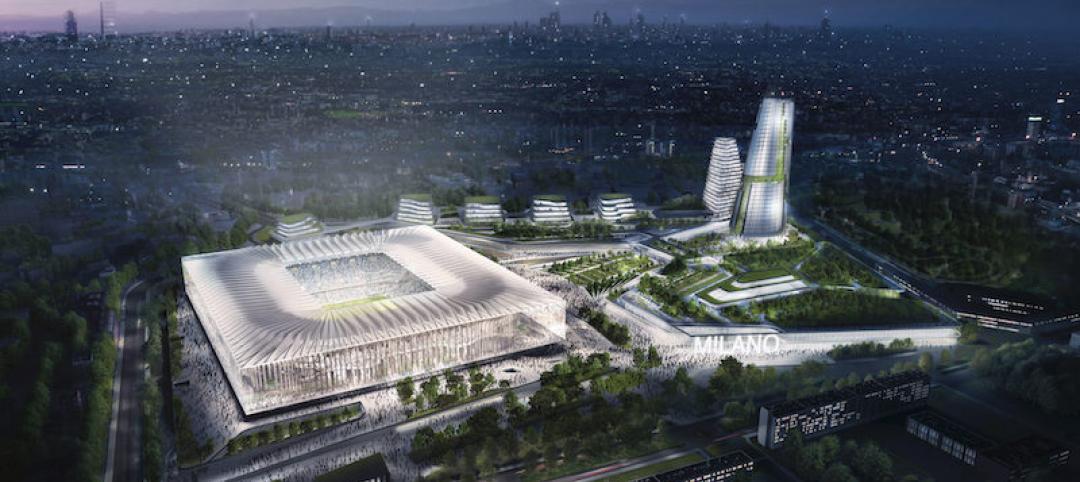The renovation of the University of Oregon’s Hayward Field had the goal of creating the “finest track and field facility in the world.” The two-year project revamped both the athlete’s and spectator’s experience. It included comfortable seating for every patron, a diversity of in-stadium food and beverage amenities, great sight lines, and close proximity to athletes and the competition. An 8,600 sf museum dedicated to the history of Oregon track & field tells the story of legendary coach Bill Bowerman and the birthplace of Nike.
Beneath the stadium is nearly 40,000 sf dedicated to training and recovery. Team amenities include: an indoor practice area (including a six-lane, 140-meter straightaway and two-story interior space for long jump, triple jump, throws, and pole vault); 100-seat team auditorium; team locker rooms, lounge and shared study spaces; weight training; equipment work-space, offices, storage and check-out; sports medicine and active/passive recovery; hydrotherapy, training and treatment; anti-gravity treadmills; nutrition station; and barber shop.
The seating bowl and roof are flowing and asymmetrical, growing in height to the southwest corner of the building. The form of the building appears to be in motion, and also enhances athlete and fan experiences by packing the greatest number of seats and stadium amenities nearest the track’s finish line.
The facility is composed of three primary components: the base, the seating bowl, and the roof canopy. The base encloses the training and team facilities and supports the stadium’s main public concourse above. It is clad in trapezoidal precast concrete panels that ground the building visually from all sides. The panel shapes all lean in the direction of the runners on the track—a nod to the theme of movement.
The bowl was raised off the main concourse to maximize fan flow and to open the stadium to views and daylight. Clad with a metal mesh screen on its underside, the bowl became a canvas for branding and connections to the site’s storied history and is visible to all from the public concourse and beyond.
The soaring wood roof canopy structure was inspired by the Pacific Northwest and acknowledges Hayward Field’s historic wooden grandstands. Stadium environments are typically dark and in shadow because of solid roof structures and materials, but this facility’s ETFE roof allows daylight in, while providing rain and wind protection for fans. A powerful metaphor of the stadium as the body of an athlete emerged with the wood canopy structure being the “ribs” that support and protect the heart with a translucent “skin” roof covering.
Given the high-profile events the facility has drawn since it has reopened, including the U.S. Track & Field Olympic Trials and the World Athletic Championships, it has lived up to the project goal of creating a world-class venue.
On the Building Team:
Owner and/or developer: University of Oregon
Design architect: SRG Partnership
Architect of record: SRG Partnership
MEP engineer: PAE Engineers
Structural engineer: MKA
General contractor/construction manager: Hoffman Construction Company
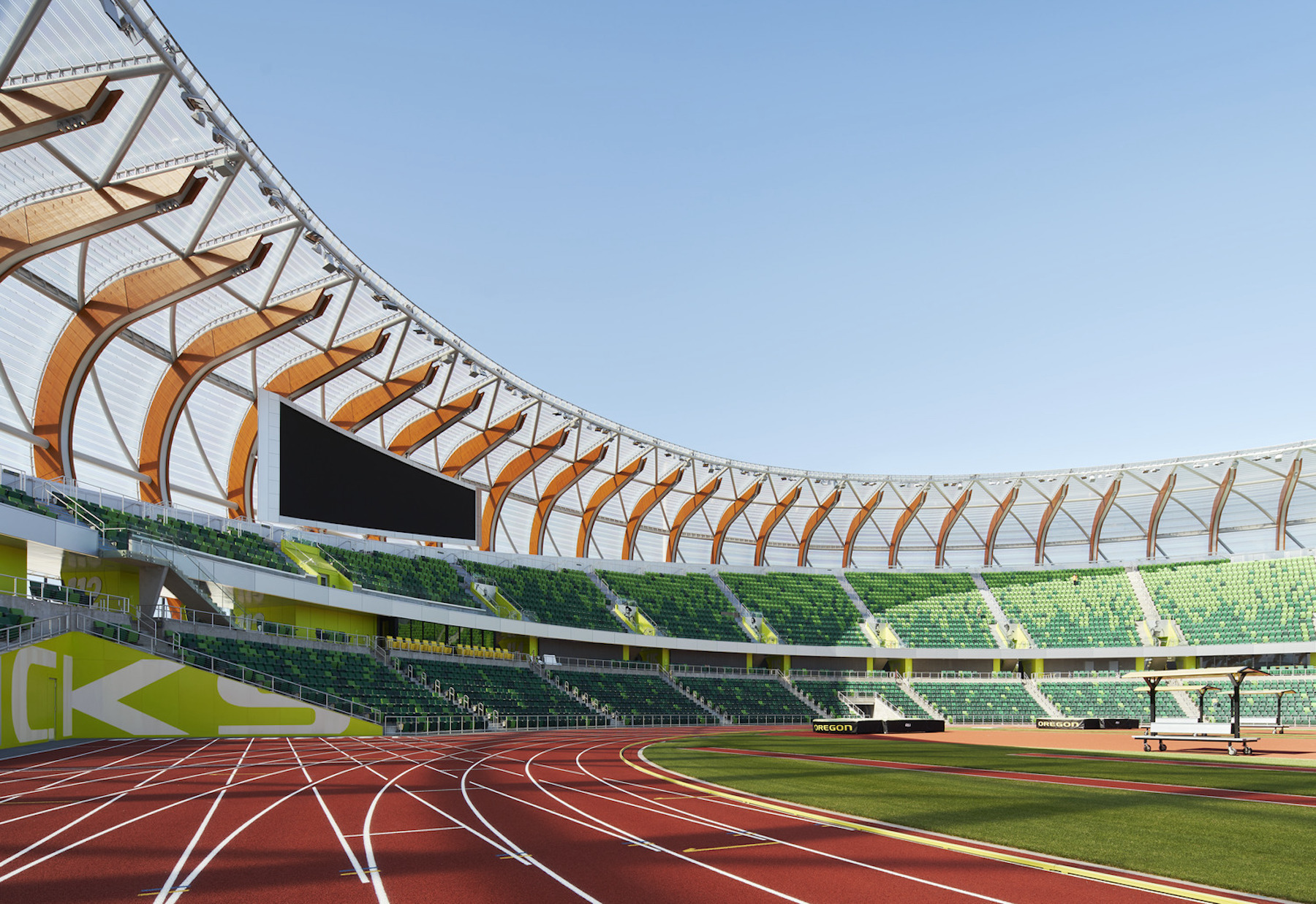
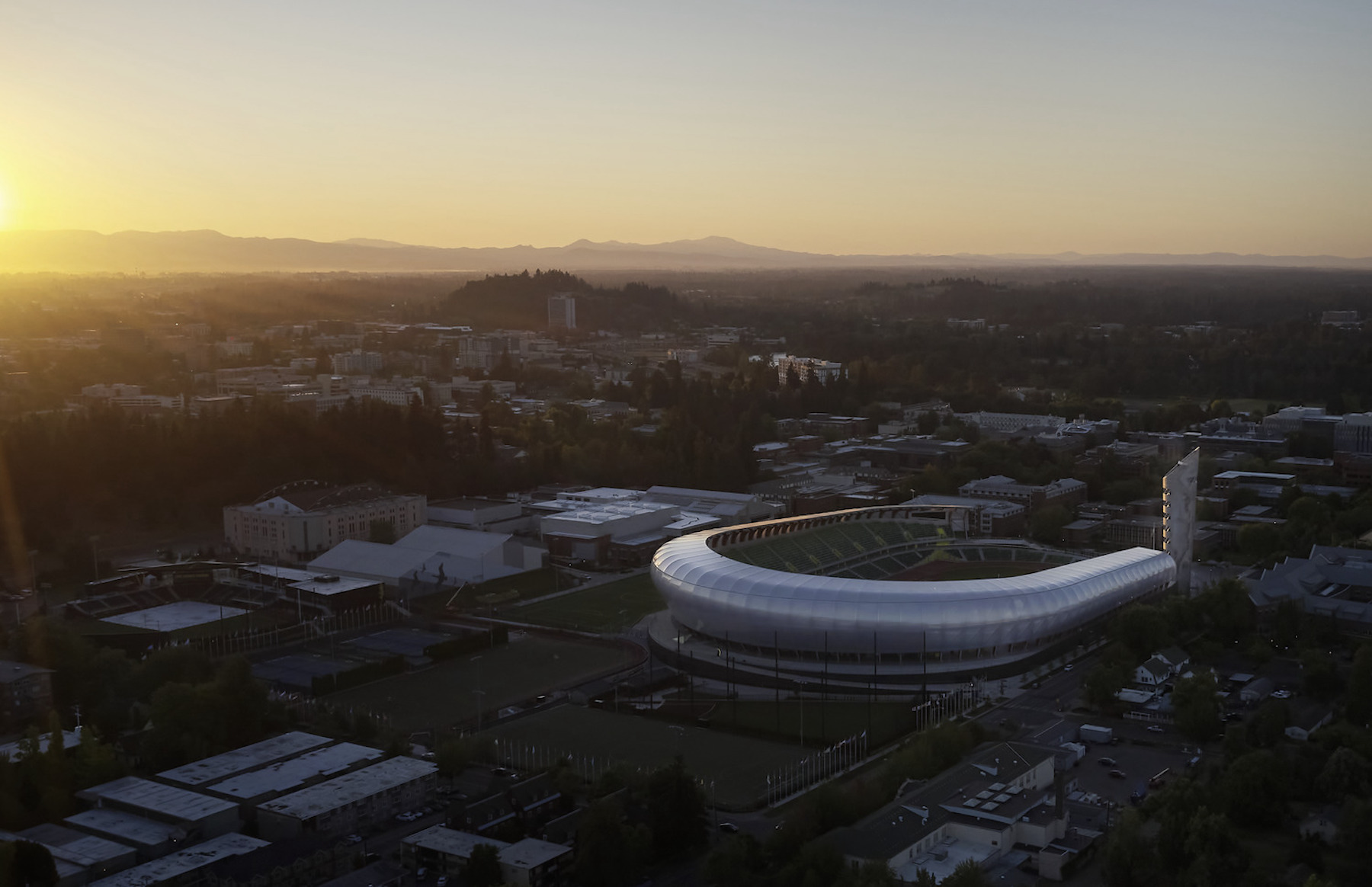
Related Stories
Giants 400 | Dec 16, 2020
Download a PDF of all 2020 Giants 400 Rankings
This 70-page PDF features AEC firm rankings across 51 building sectors, disciplines, and specialty services.
Giants 400 | Dec 3, 2020
2020 Sports Facilities Sector Giants: Top architecture, engineering, and construction firms in the U.S. sports facilities sector
Kimley-Horn, Mortenson, and Populous top BD+C's rankings of the nation's largest sports facilities sector architecture, engineering, and construction firms, as reported in the 2020 Giants 400 Report.
Building Team Awards | Oct 20, 2020
Winning with teamwork
The new home of the NBA’s Golden State Warriors, Chase Center, is honored with a Gold Award in the 2020 Building Team Awards.
Arenas | Oct 20, 2020
Co-op Live will become the UK’s largest arena
Populous is designing the project.
Giants 400 | Aug 28, 2020
2020 Giants 400 Report: Ranking the nation's largest architecture, engineering, and construction firms
The 2020 Giants 400 Report features more than 130 rankings across 25 building sectors and specialty categories.
Arenas | Jan 27, 2020
Sacred Heart University to build $60 million hockey arena
JLG and S/L/A/M Collaborative are designing the project.
GIANTS 19 PREMIUM | Dec 23, 2019
Top 65 Sports Facilities Engineering Firms for 2019
Walter P Moore, Kimley-Horn, ME Engineers, Thornton Tomasetti, and EXP head the rankings of the nation's largest sports facilities sector engineering and engineering/architecture (EA) firms, as reported in Building Design+Construction's 2019 Giants 300 Report.
GIANTS 19 PREMIUM | Dec 23, 2019
Top 90 Sports Facilities Architecture Firms for 2019
Populous, HKS, HOK, Gensler, and HNTB top the rankings of the nation's largest sports facilities sector architecture and architecture engineering (AE) firms, as reported in Building Design+Construction's 2019 Giants 300 Report.
Arenas | Oct 10, 2019
SWA designs people-centric landscape and public realm for Chase Center
Chase Center is the new home of the Golden State Warriors.
Arenas | Oct 8, 2019
Populous submits proposal for AC Milan and FC Internazionale Milano stadium
The stadium is designed to be the most sustainable in Europe.


